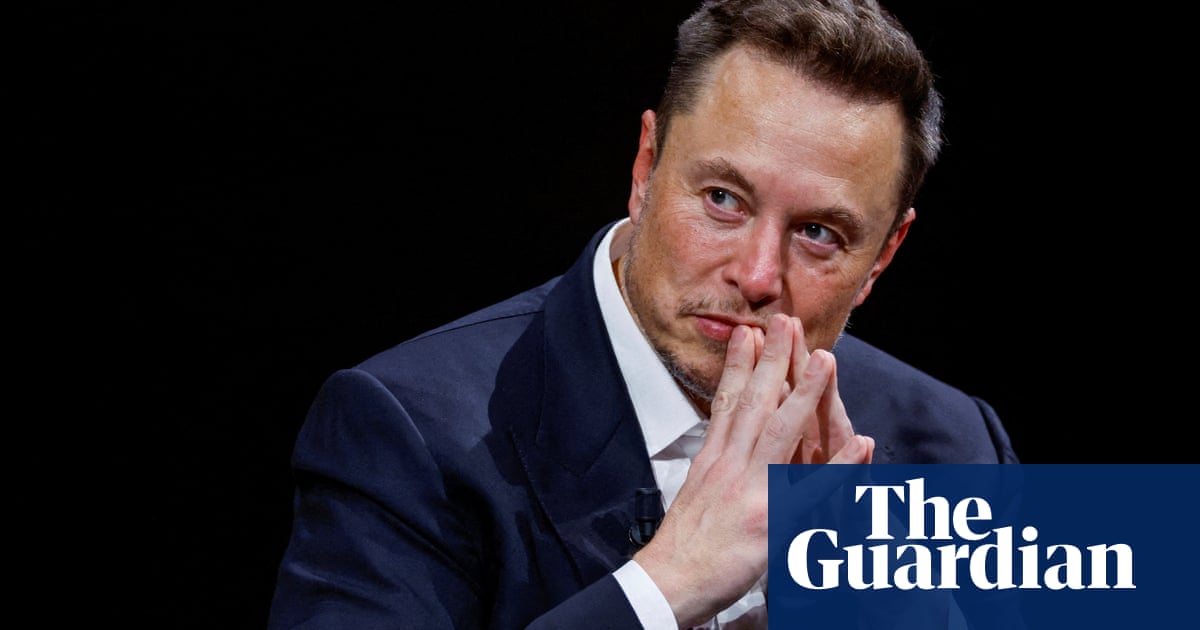Superhuman artificial intelligence that is smarter than anyone on Earth could exist next year, Elon Musk has said, unless the sector’s power and computing demands become unsustainable before then.
The prediction is a sharp tightening of an earlier claim from the multibillionaire, that superintelligent AI would exist by 2029. Whereas “superhuman” is generally defined as being smarter than any individual human at any specific task, superintelligent is often defined instead as being smarter than every human’s combined ability at any task.
“My guess is that we’ll have AI that is smarter than any one human probably around the end of next year,” Musk said in a livestreamed interview on his social network X. That prediction was made with the caveat that increasing demands for power and shortages of the most powerful AI training chips could limit their capability in the near term.
“Last year it was chip-constrained,” he said. “People could not get enough Nvidia chips. This year it’s transitioning to a voltage transformer supply. In a year or two, it’s just electricity supply.”
In 2023, when he predicted a five- to six-year runway for superintelligence, Musk was vocally concerned about the ramifications. Speaking alongside the launch of his AI startup, xAI, that year, he said: “If I could press pause on AI or really advanced AI digital superintelligence I would. It doesn’t seem like that is realistic so xAI is essentially going to build an AI. In a good way, sort of hopefully.
“It’s actually important for us to worry about a Terminator future in order to avoid a Terminator future,” Musk added, referencing the film where a self-aware computer system wages war on humanity.
A year on, and xAI is firmly trying to lead the development of superintelligence. In a recent interview, Musk said the latest version of its chatbot Grok AI was on par with GPT-4, the leading model from OpenAI. GPT-4 is more than a year old, and competitors have already met or exceeded its capabilities, with Anthropic’s Claude 3 Sonnet generally seen to be the new market leader.
The entrepreneur’s predictions are infamously freely made. In 2016, he wrongly forecast that within two years it would be possible for a Tesla to drive autonomously from New York to Los Angeles. That same year he said his SpaceX rocket company would fly to Mars in 2018 – it still has not. And in 2017, Musk suggested his Neuralink brain chip startup’s first product would be on the market “in about four years”. The first human received an implant from the company seven years later.
Musk has his hands full. Over the weekend, he declared war on a Brazilian supreme court justice, calling for him to resign or be impeached over court orders levied against X requiring it to take down the accounts of some Brazilian users. On Monday, news broke of testimony he had given in court about his posts on the site in which he conceded that he “may have done more to financially impair the company than to help it”.
after newsletter promotion
He added: “I do not guide my posts by what is financially beneficial but by what I believe is interesting or important or entertaining to the public.”

